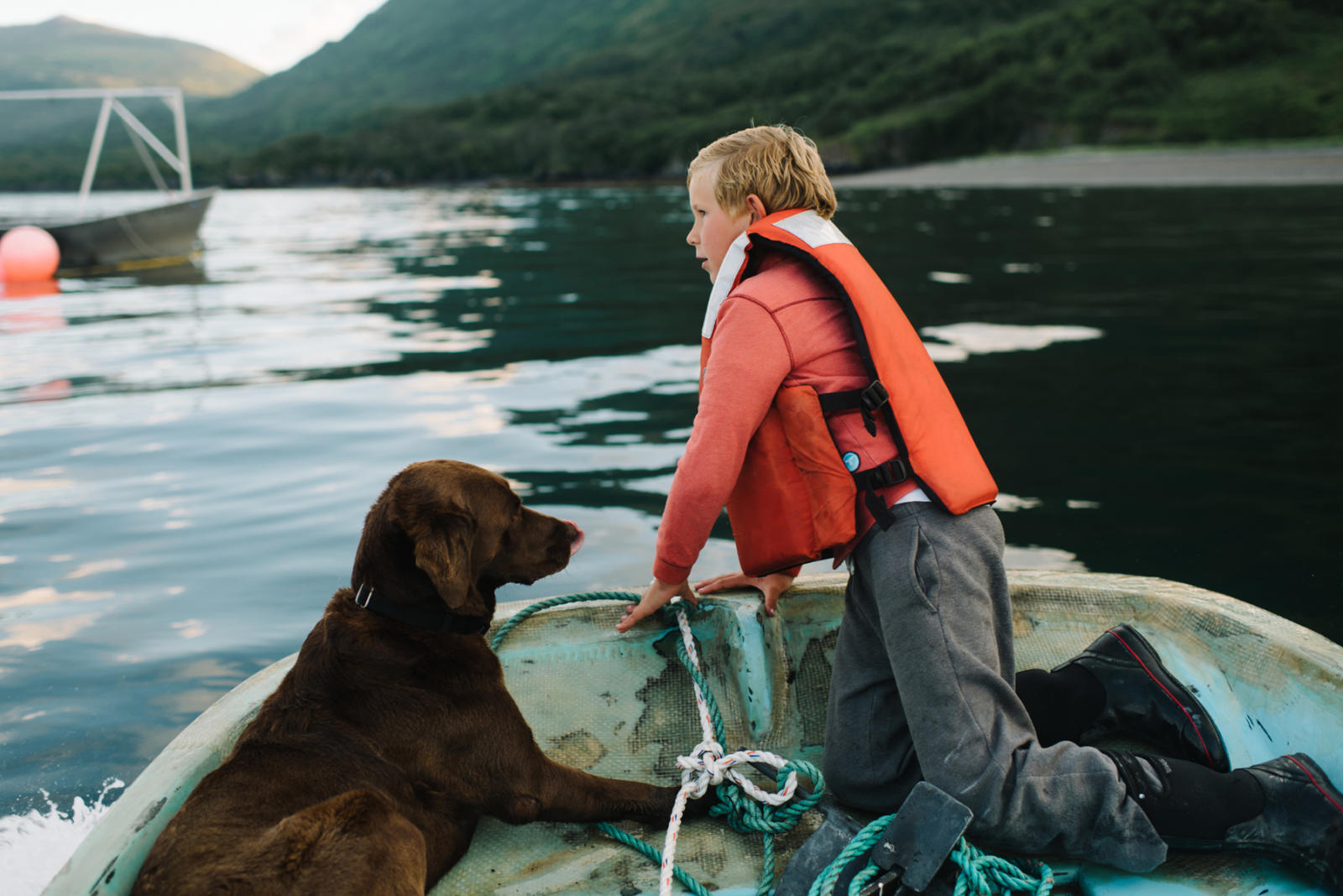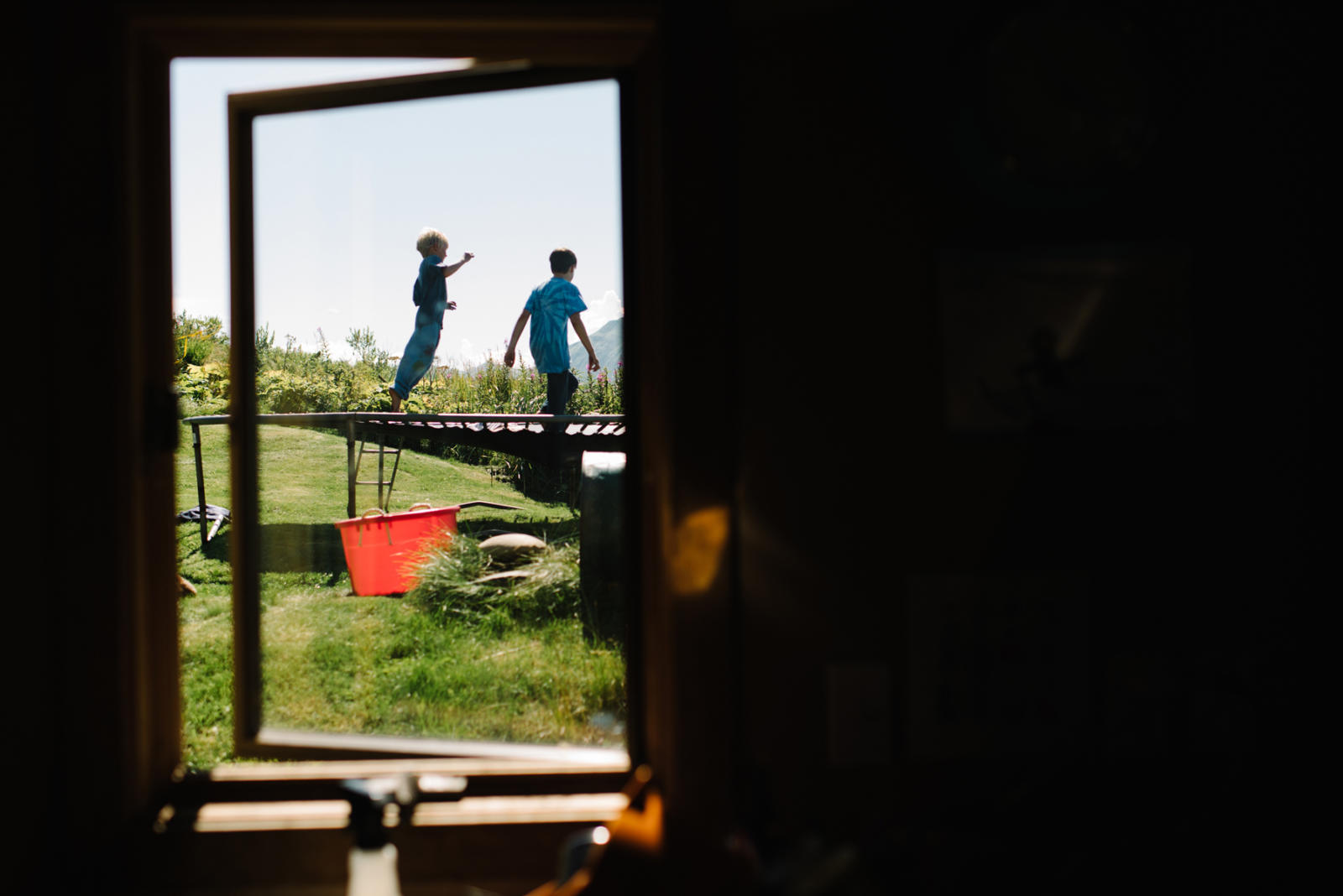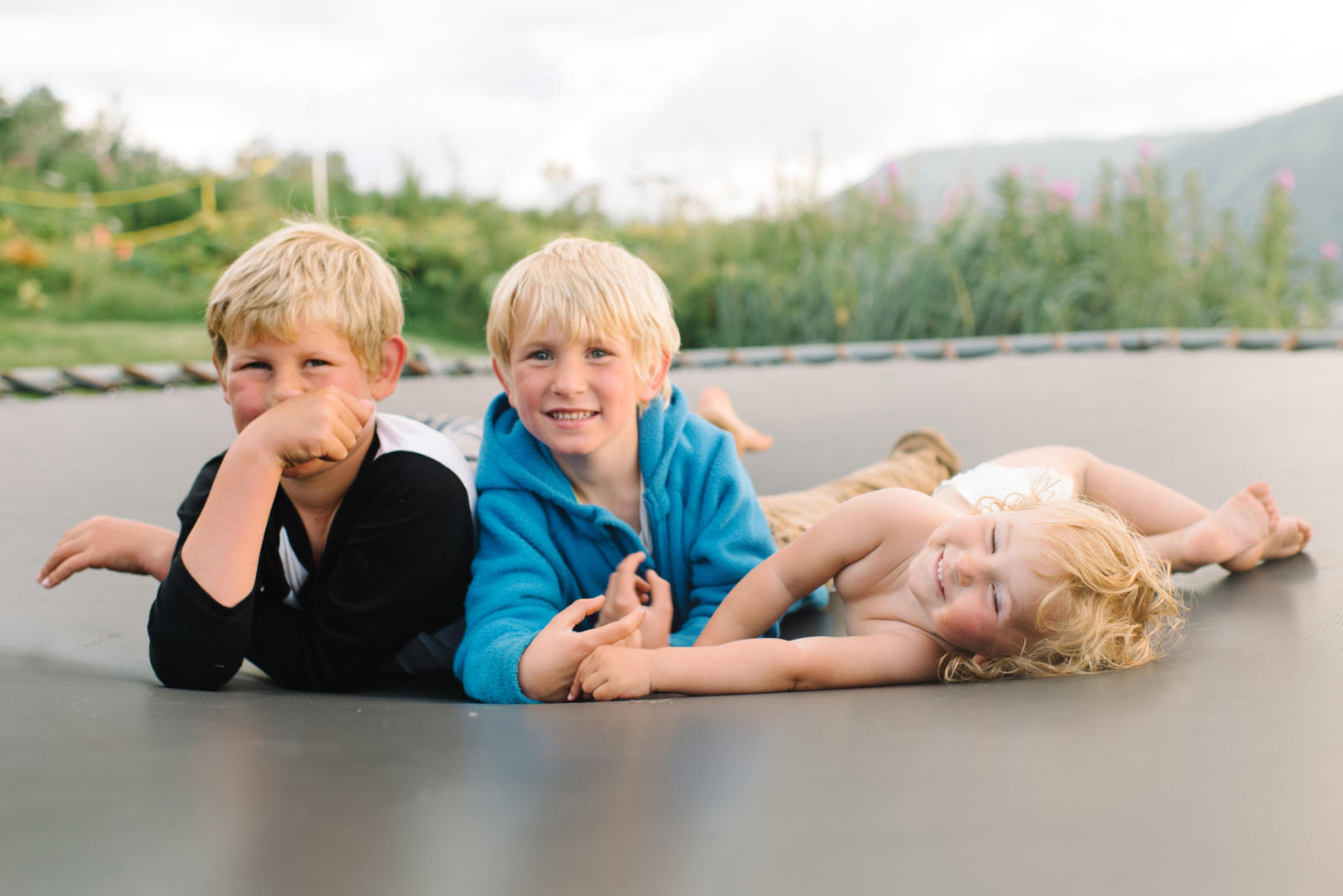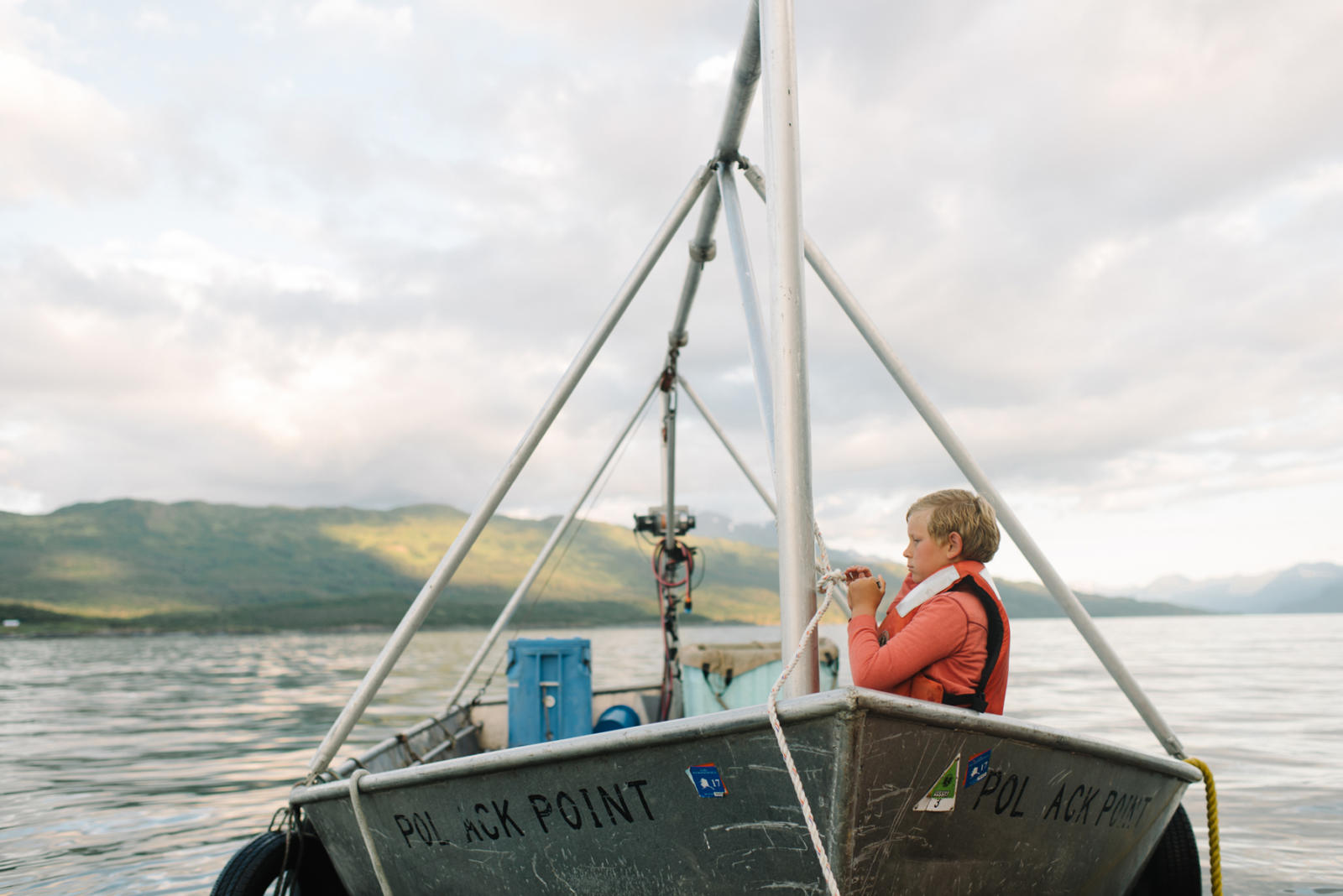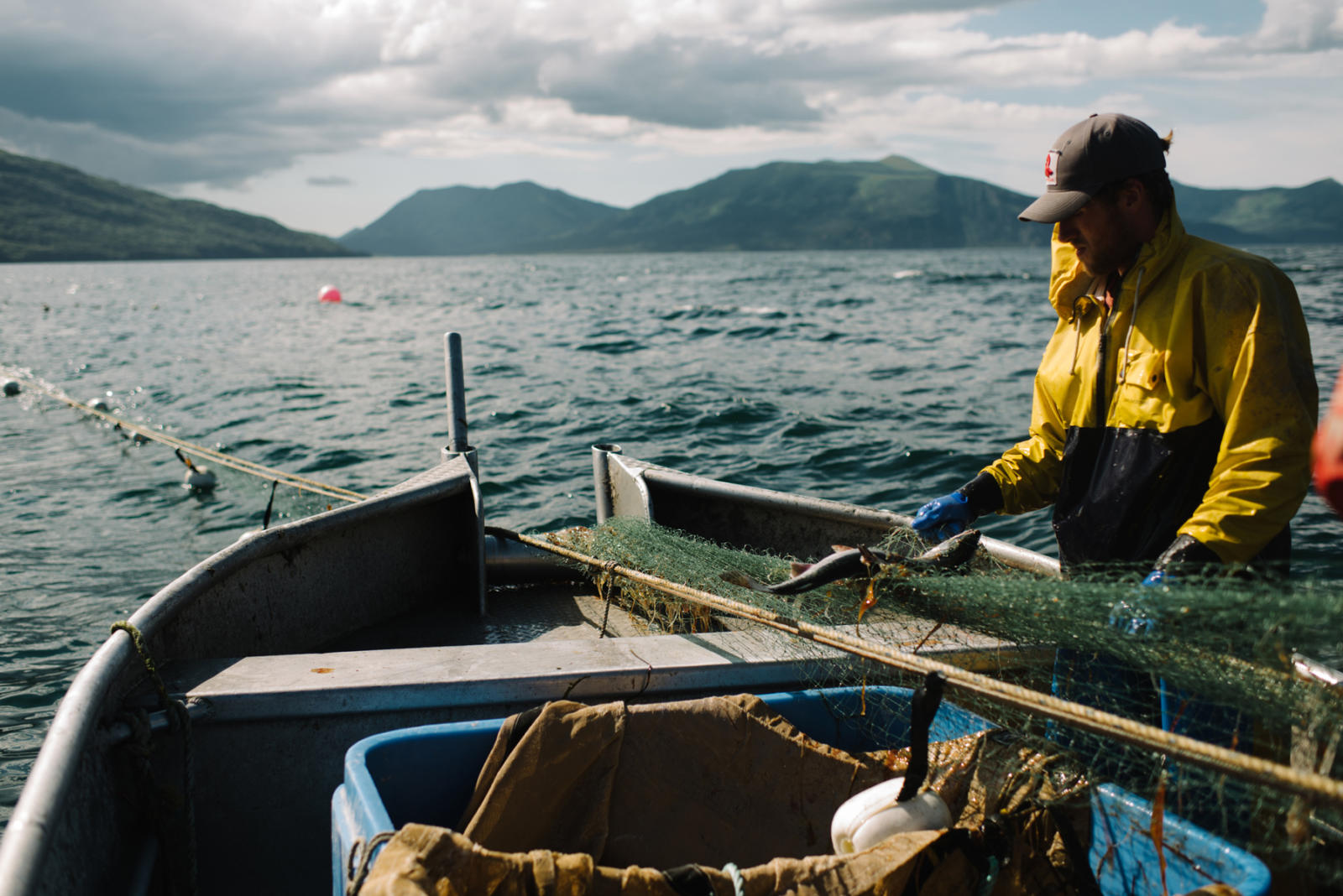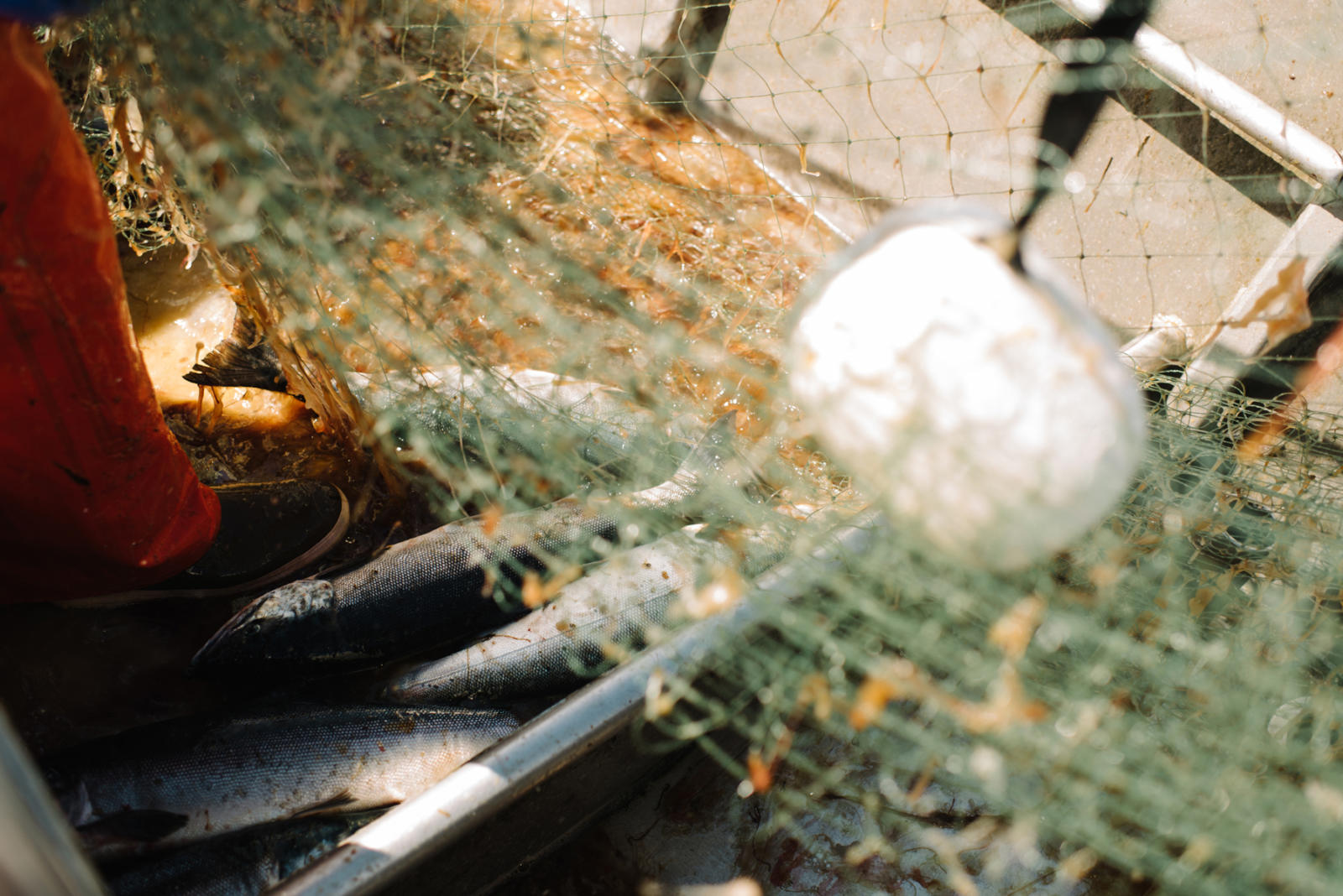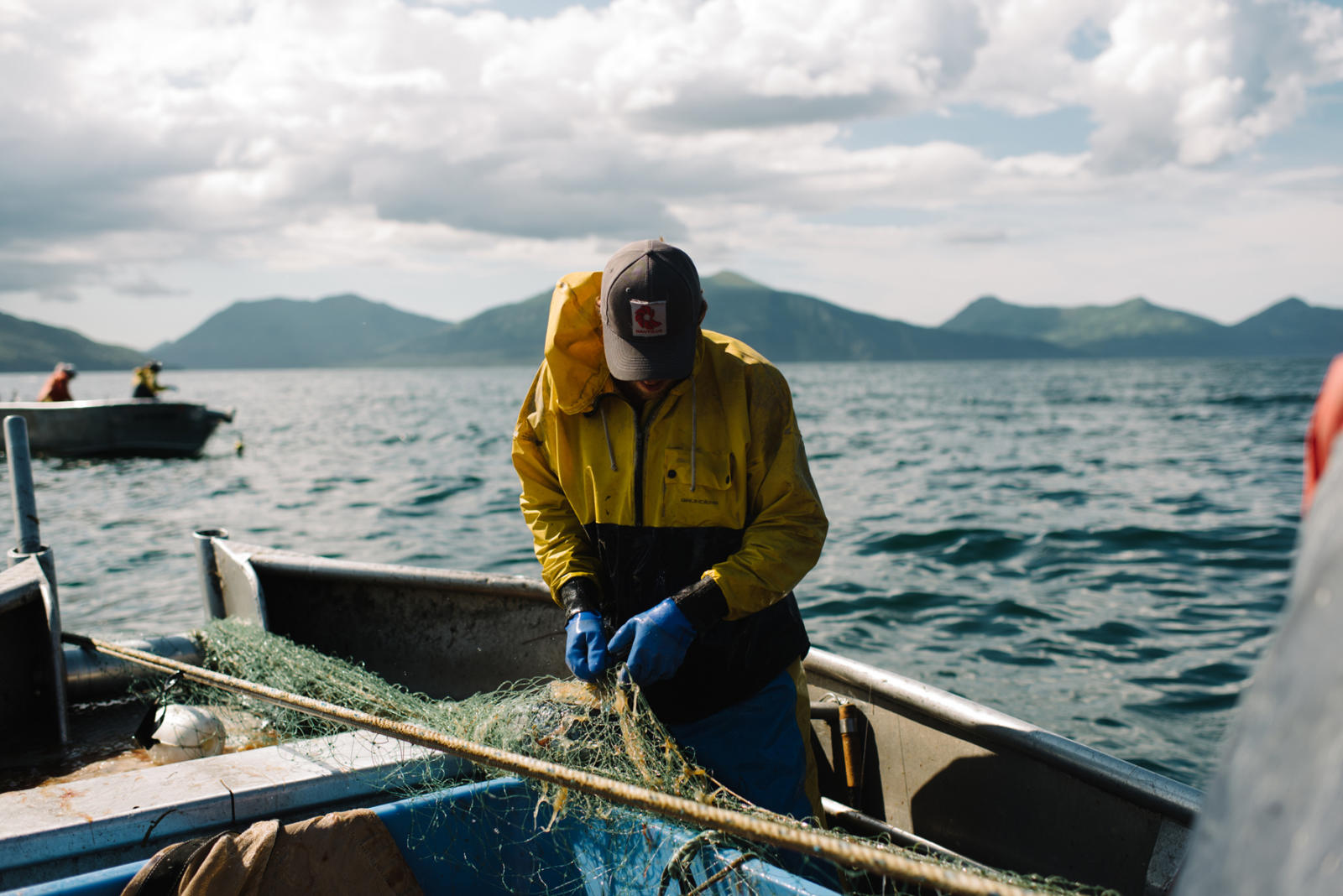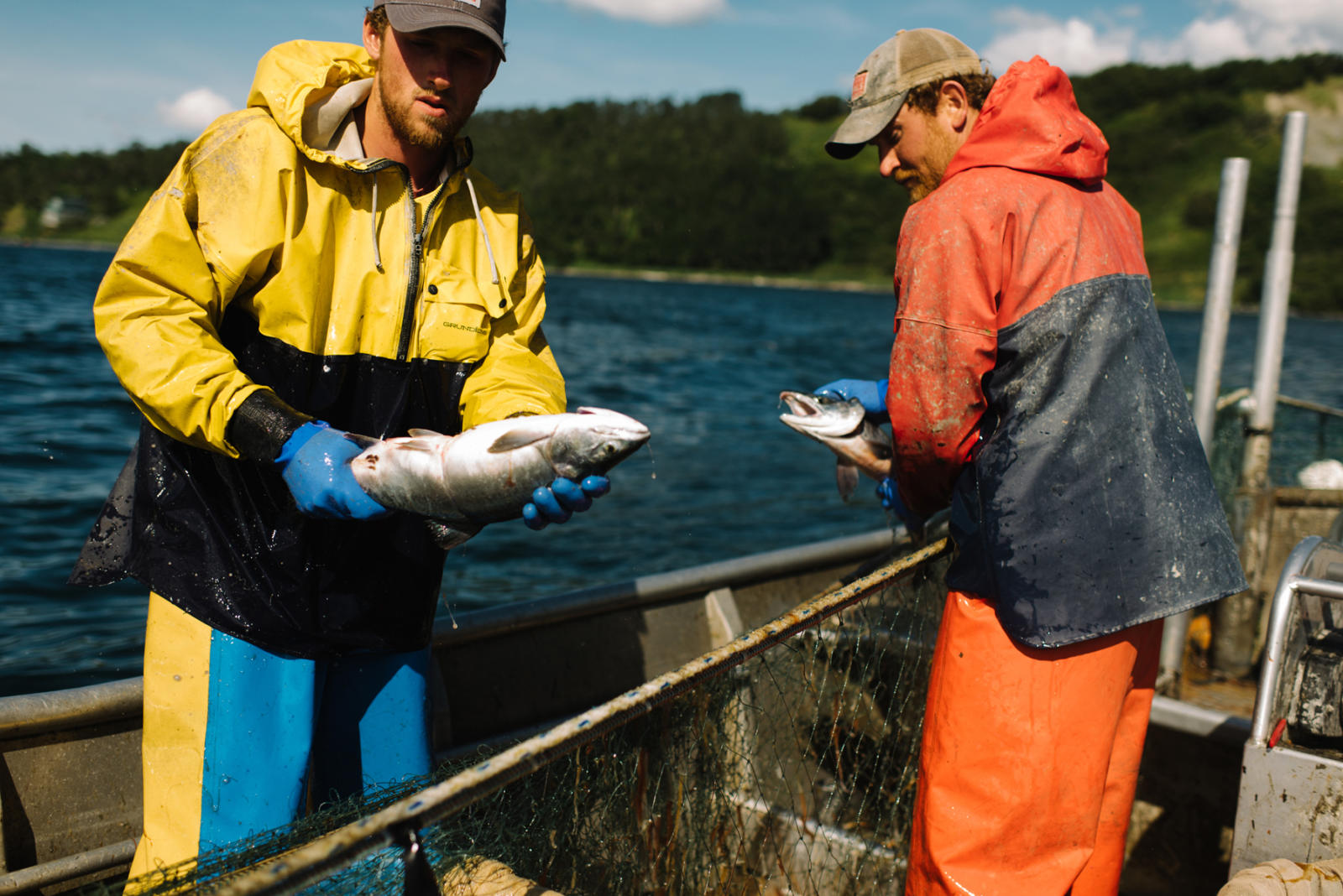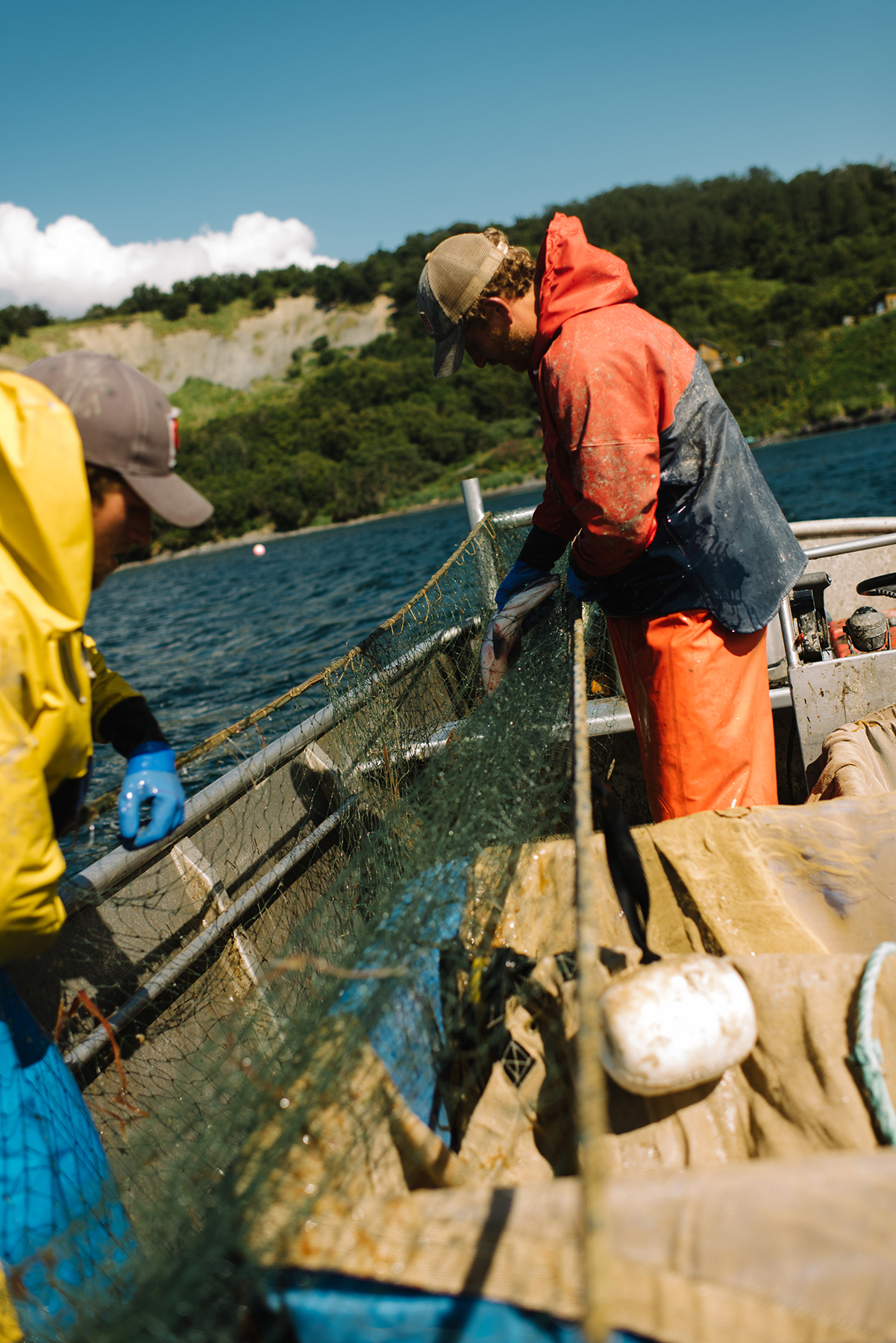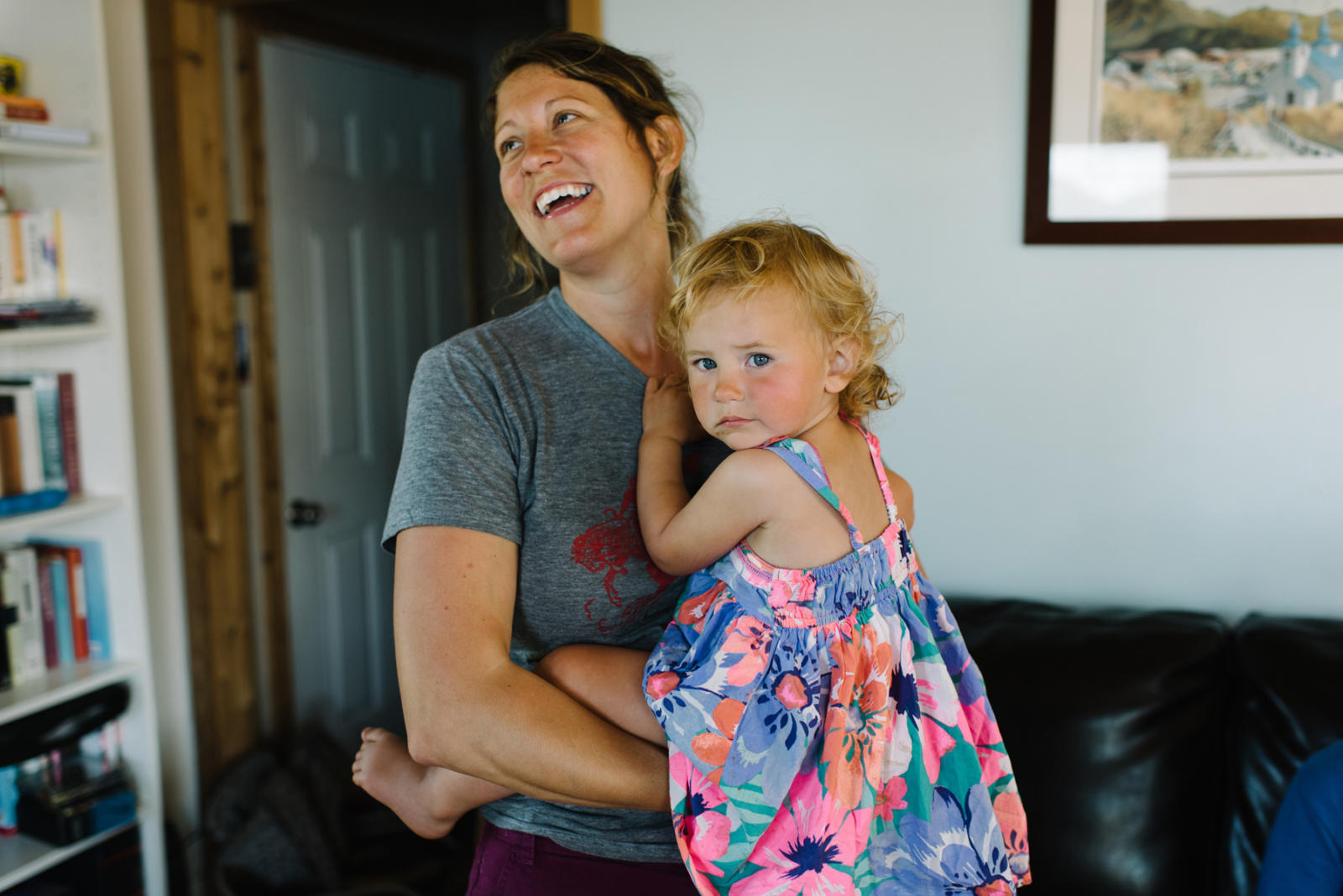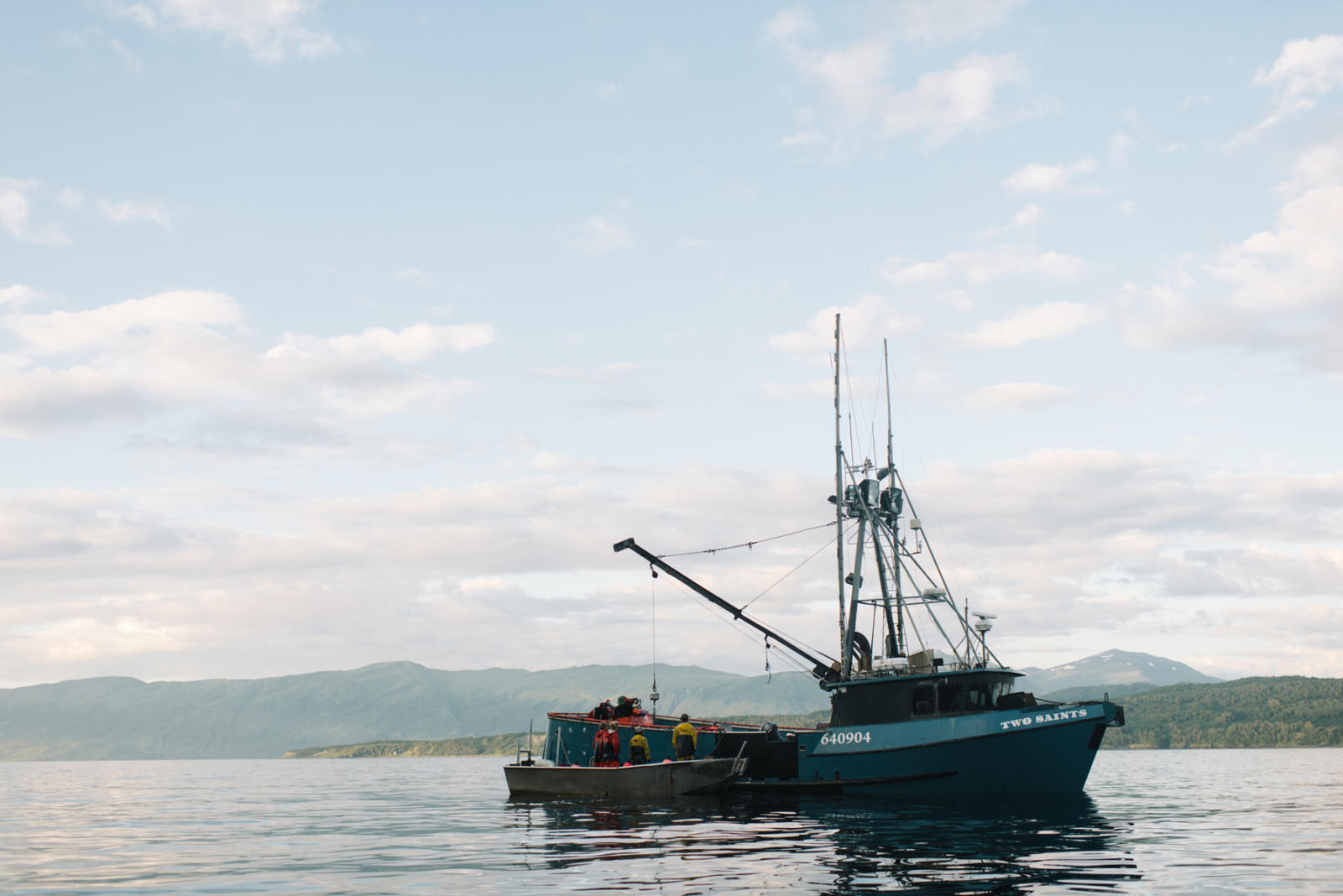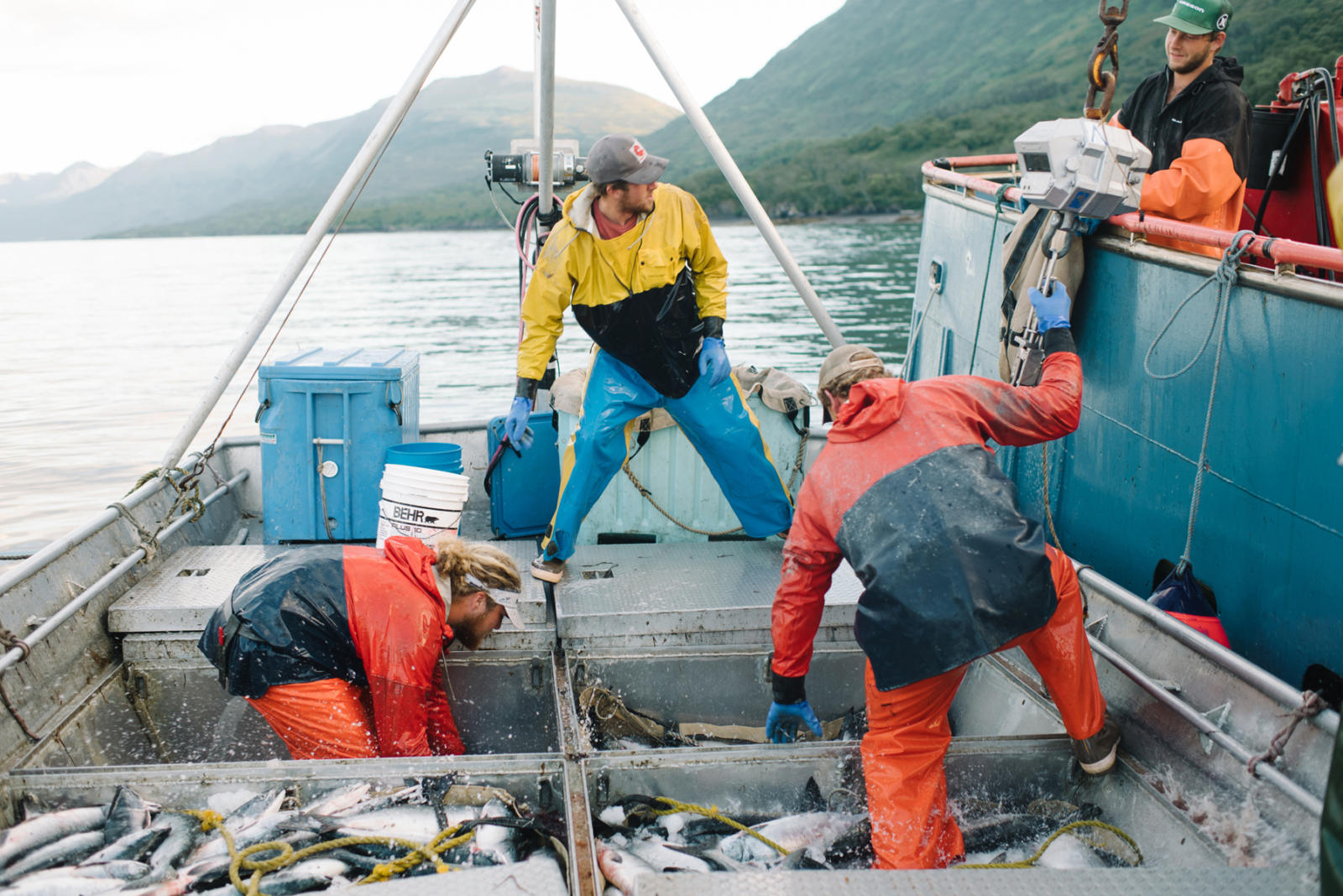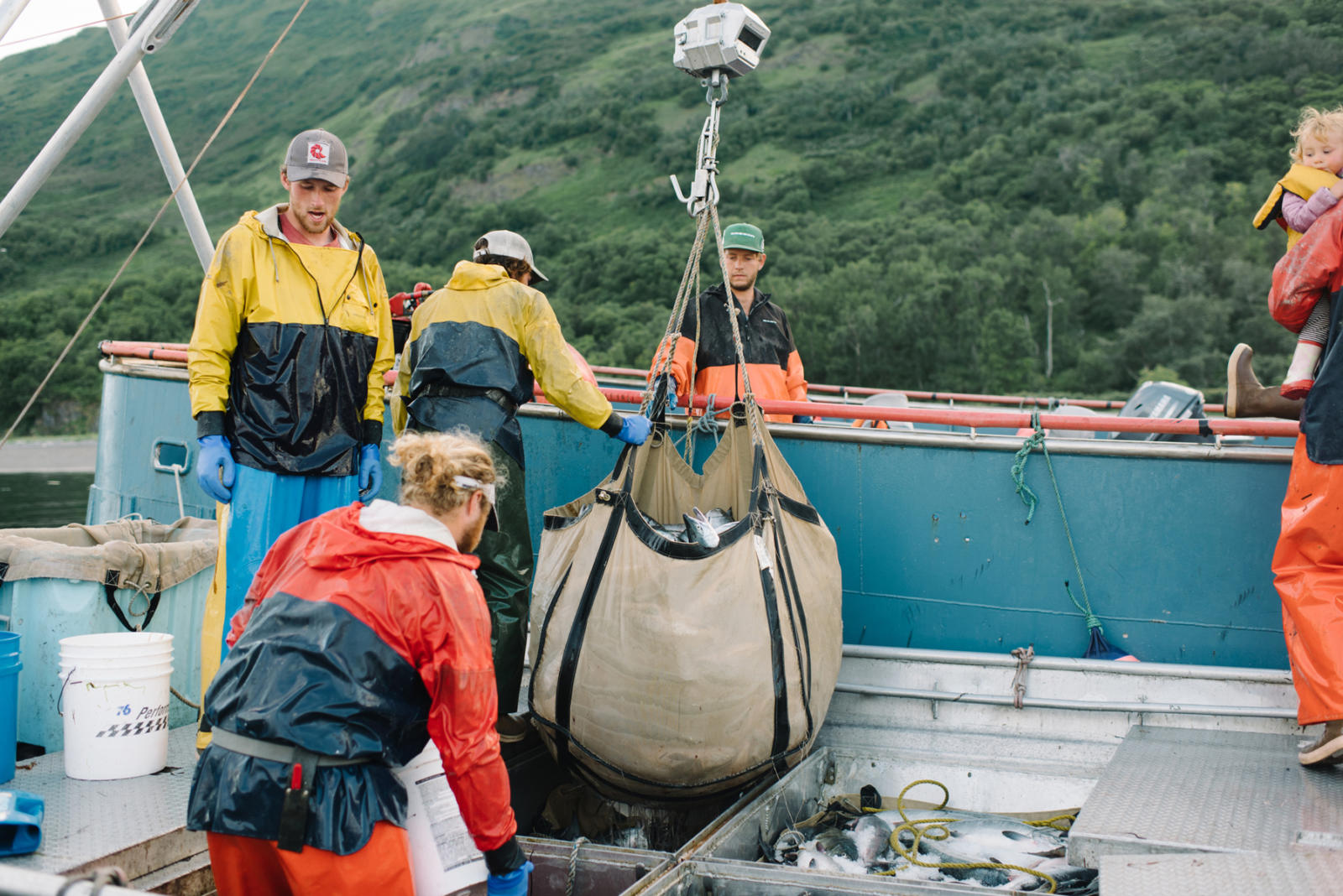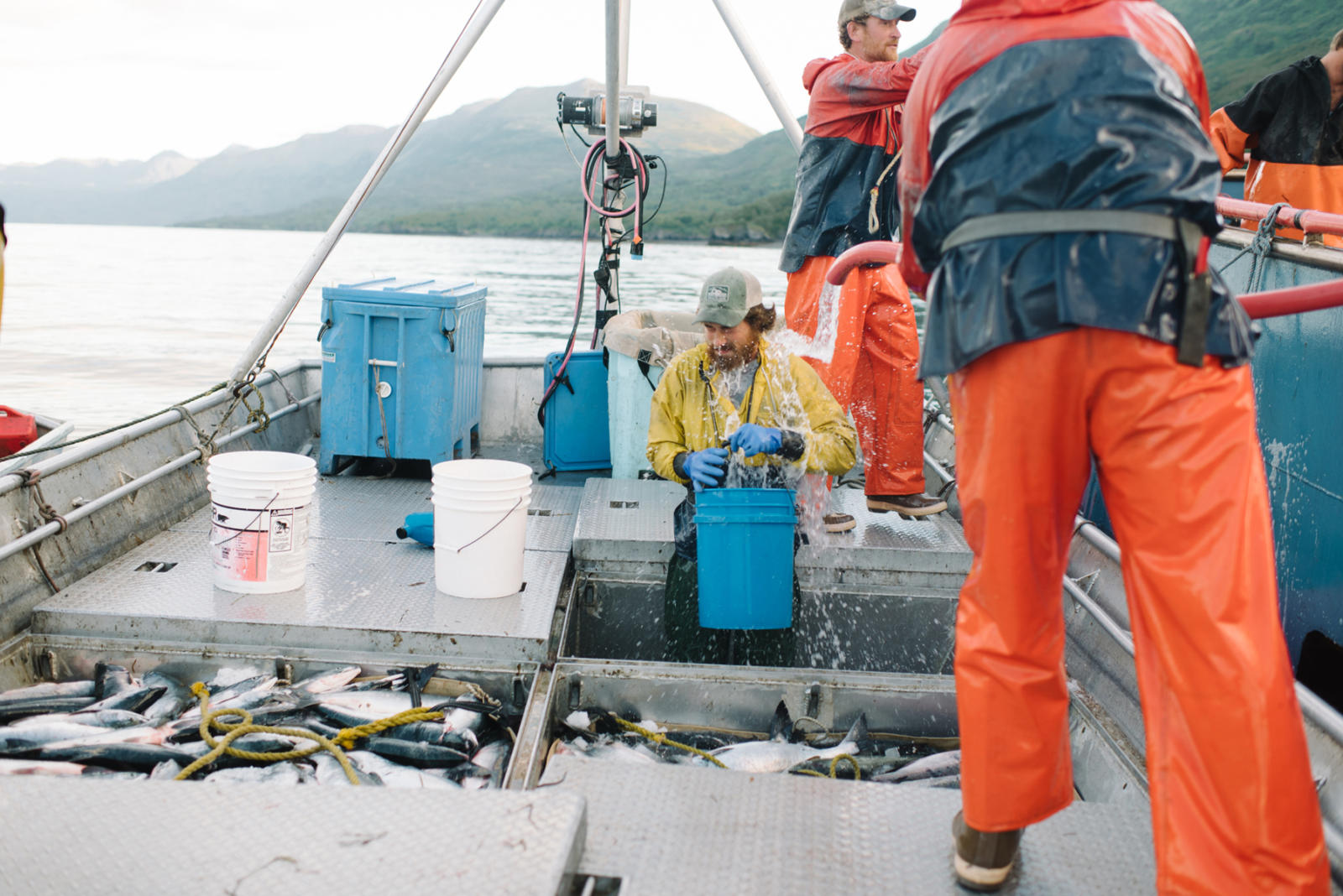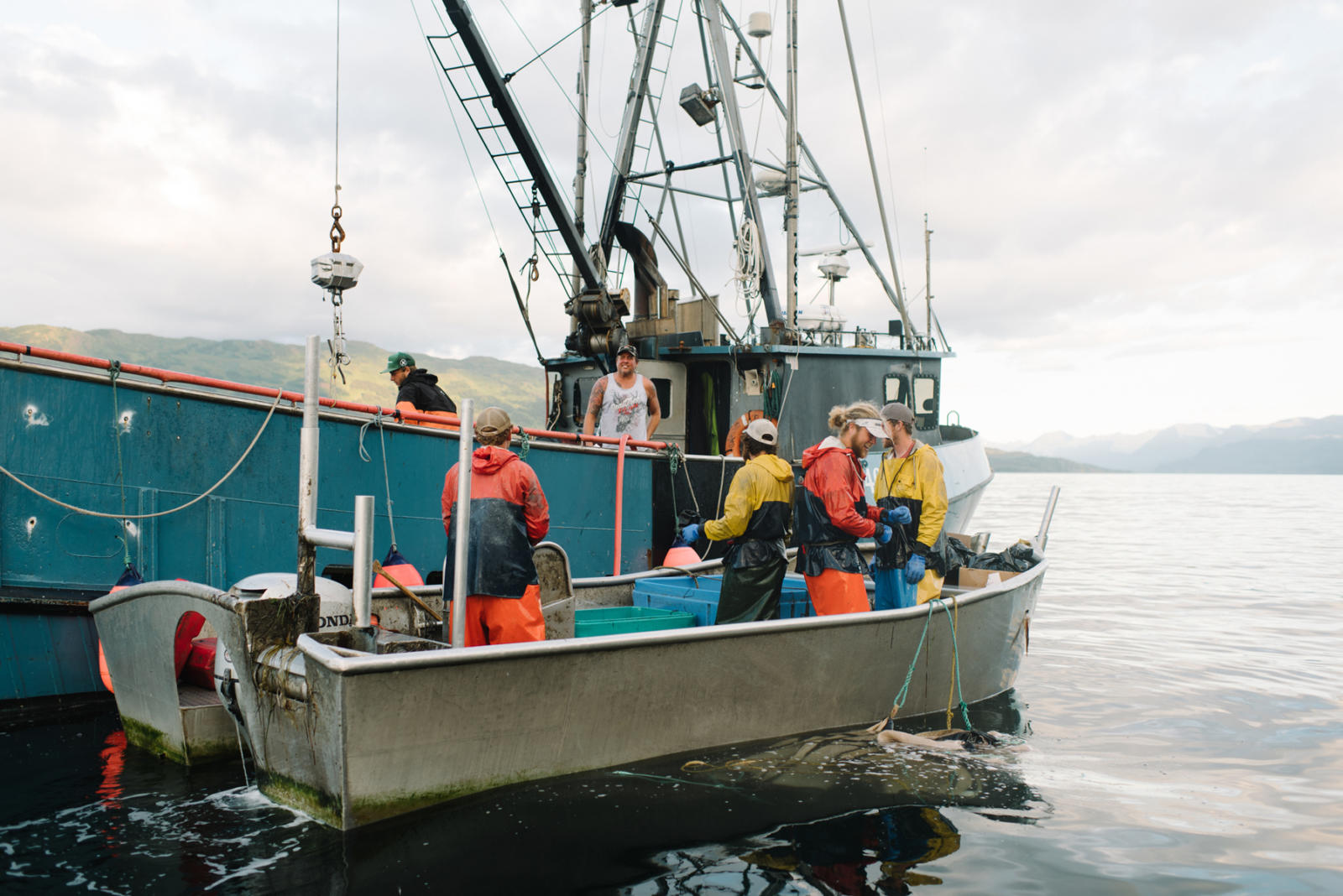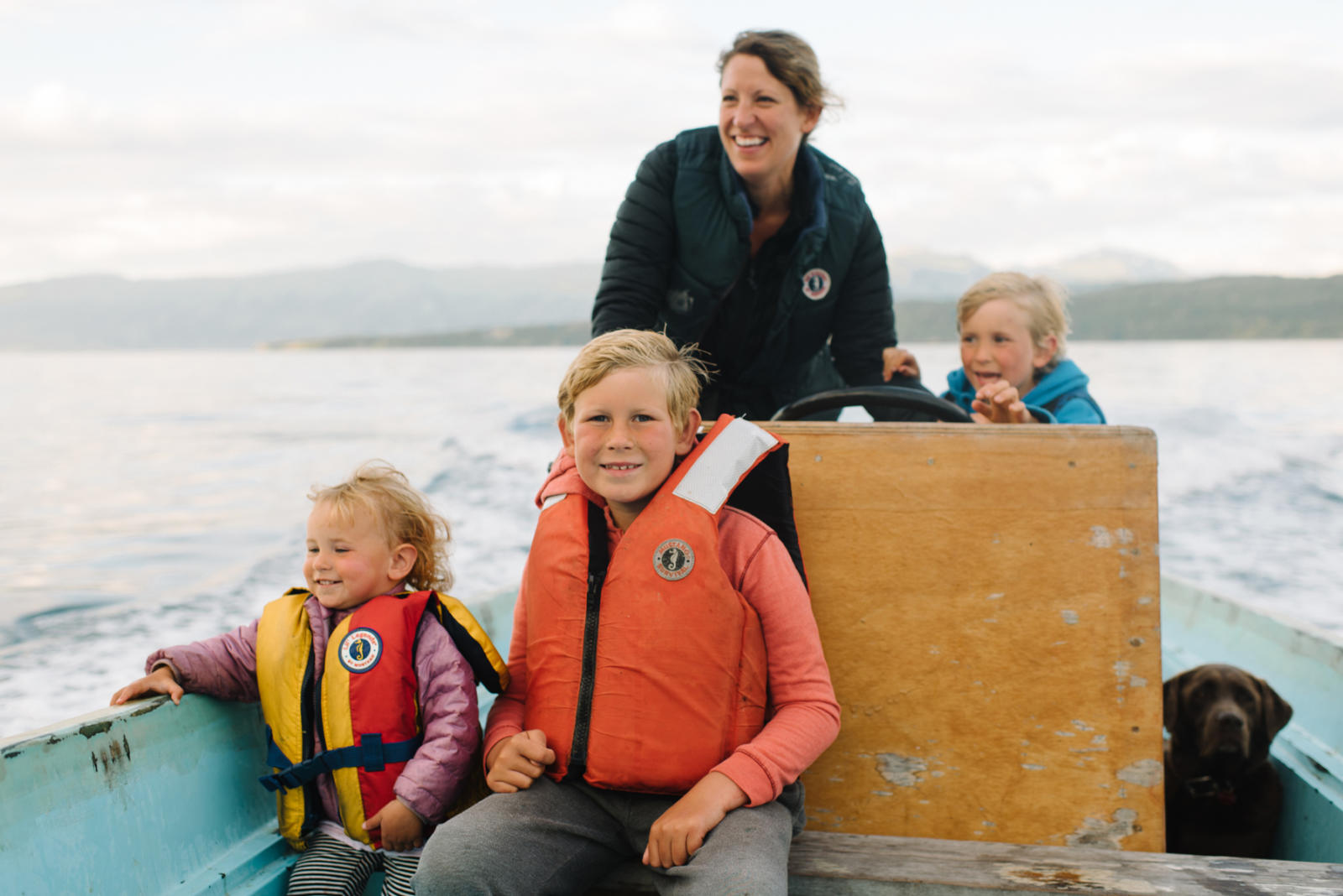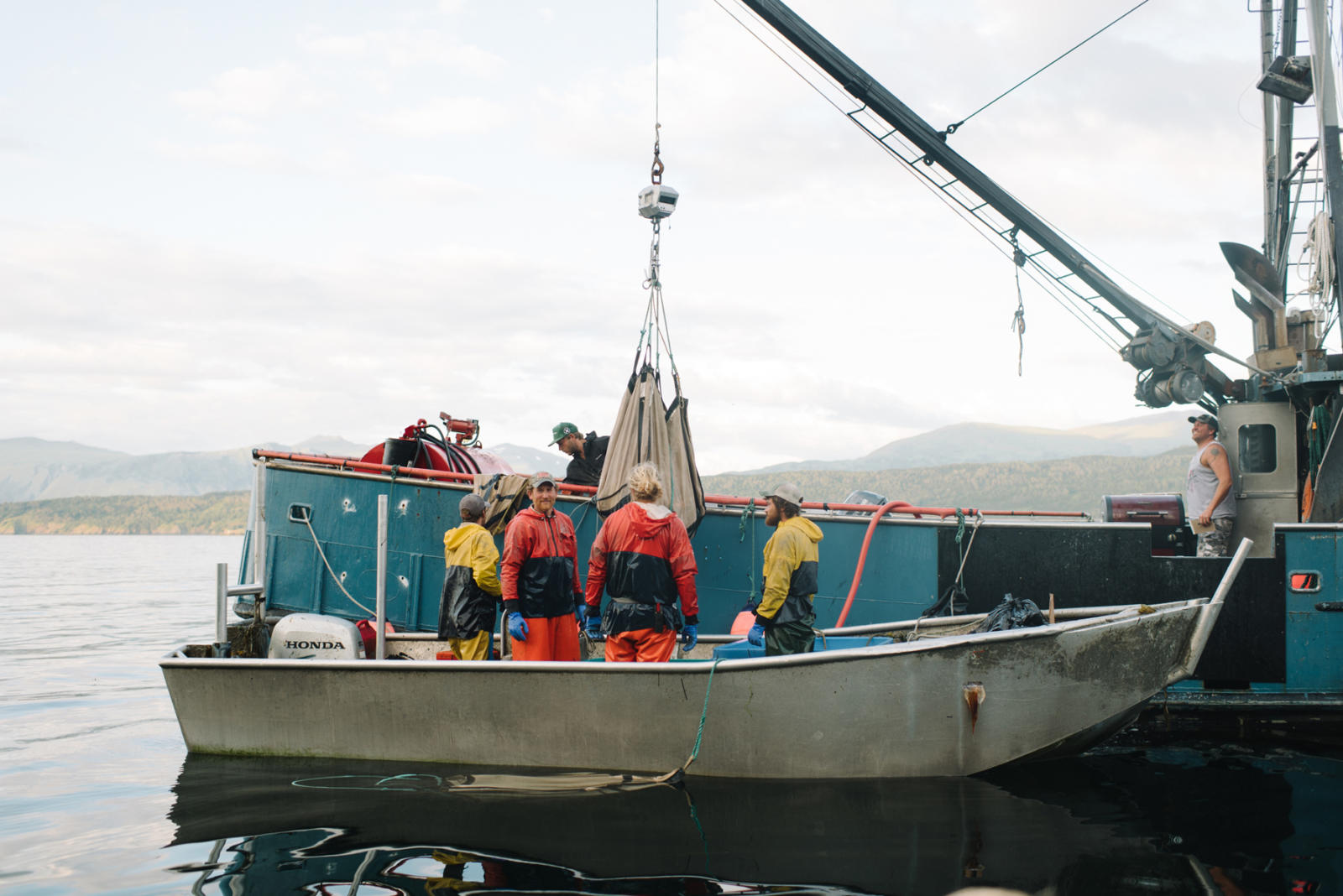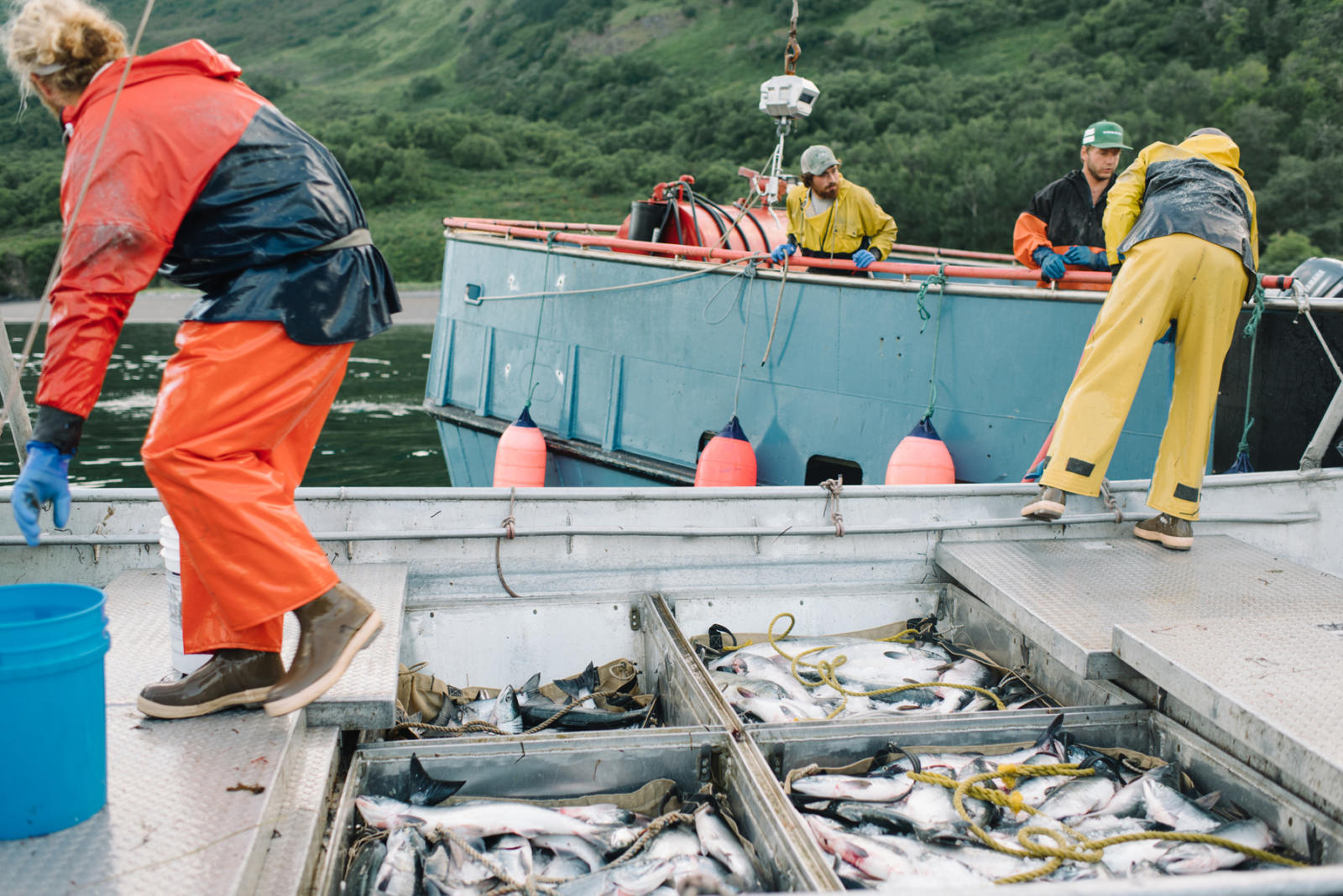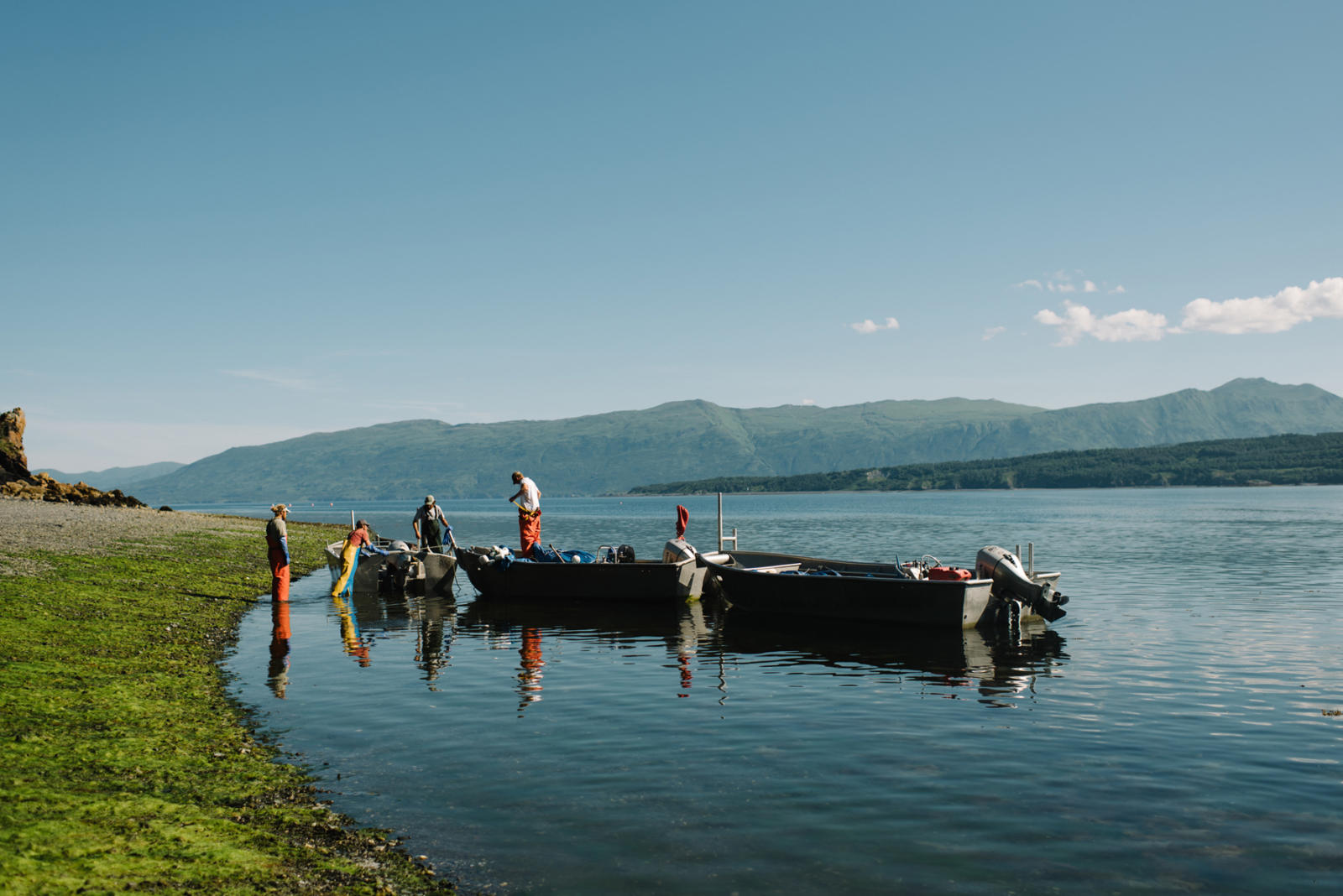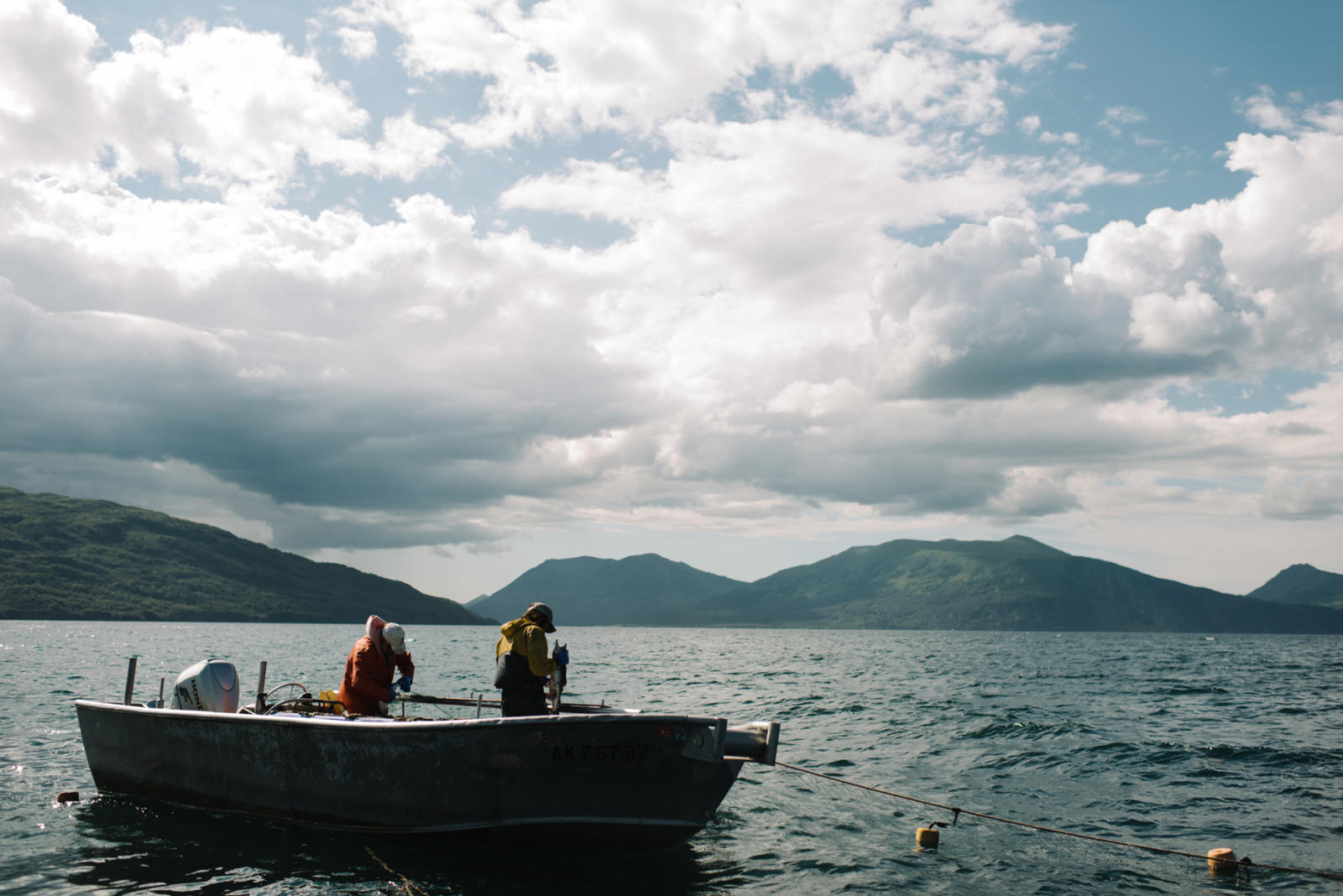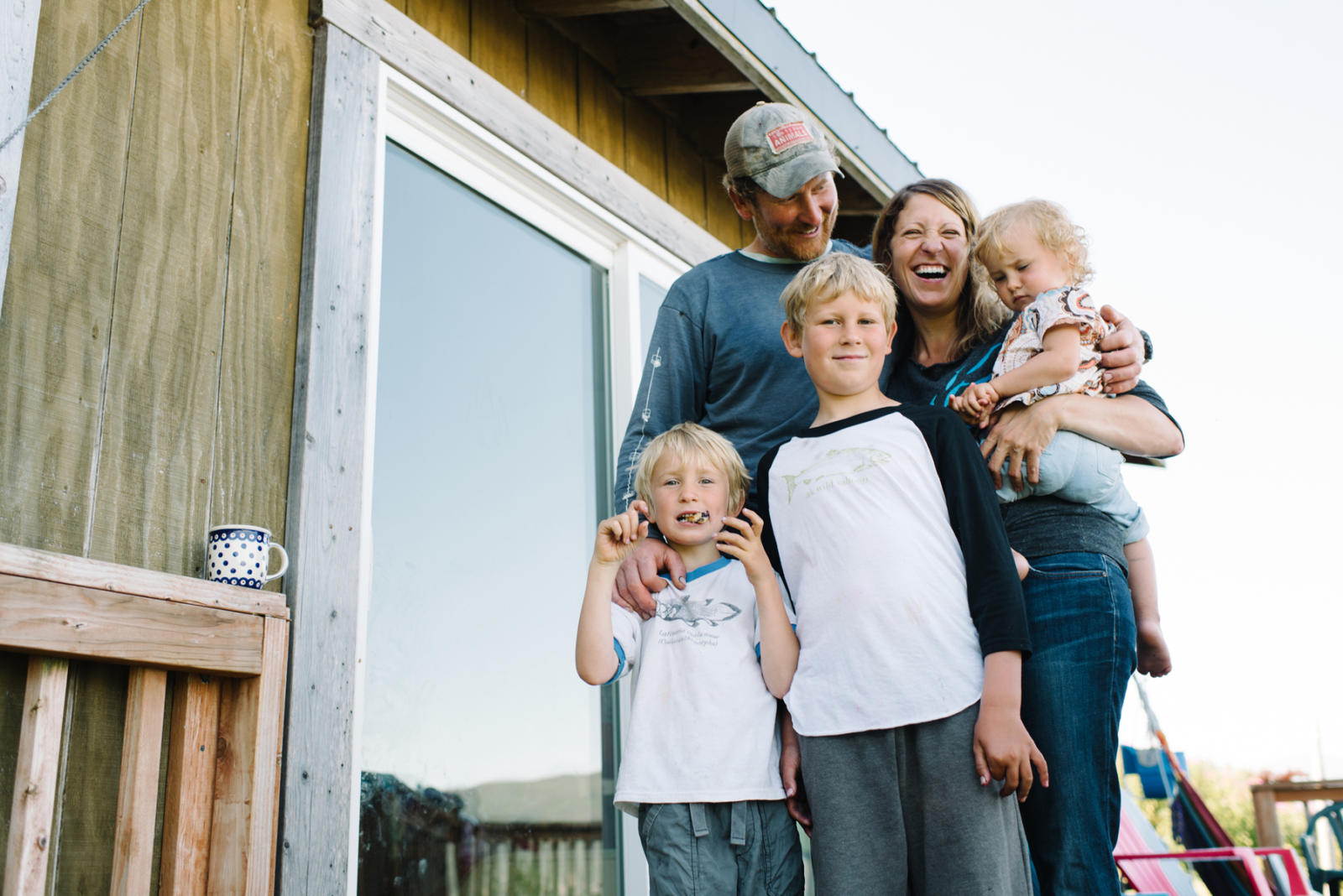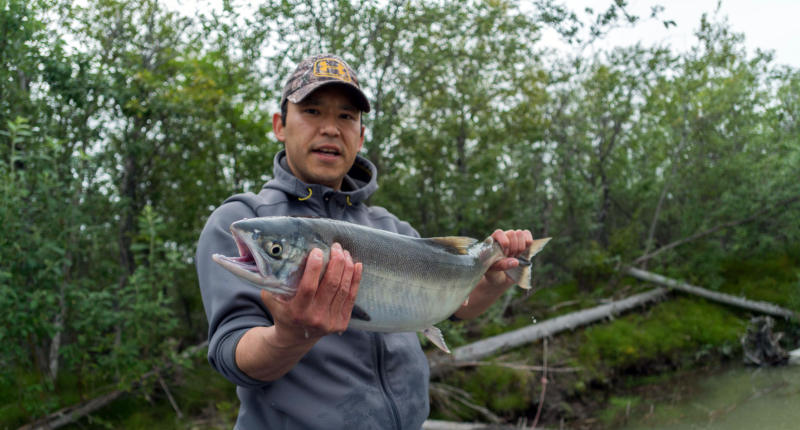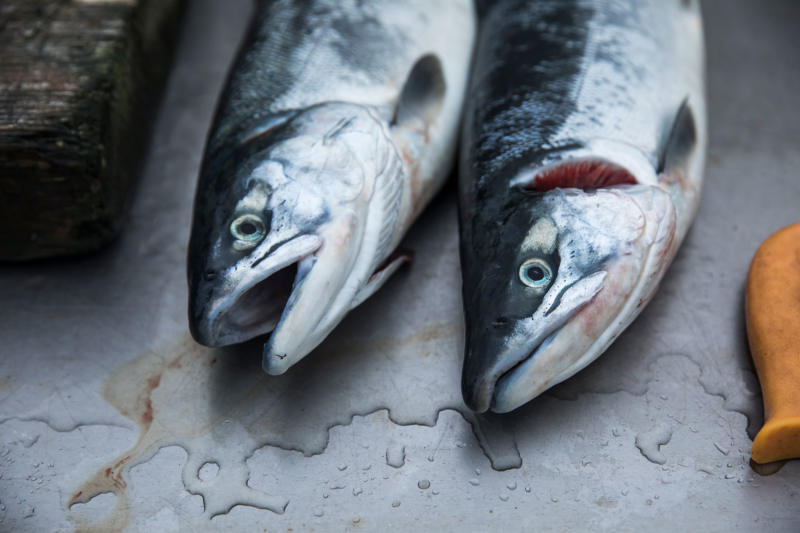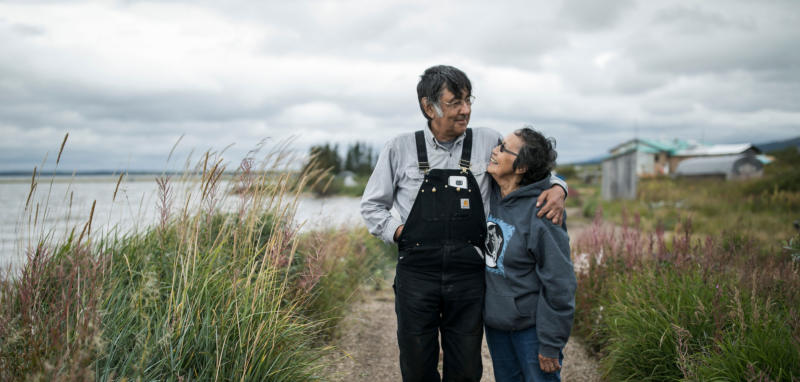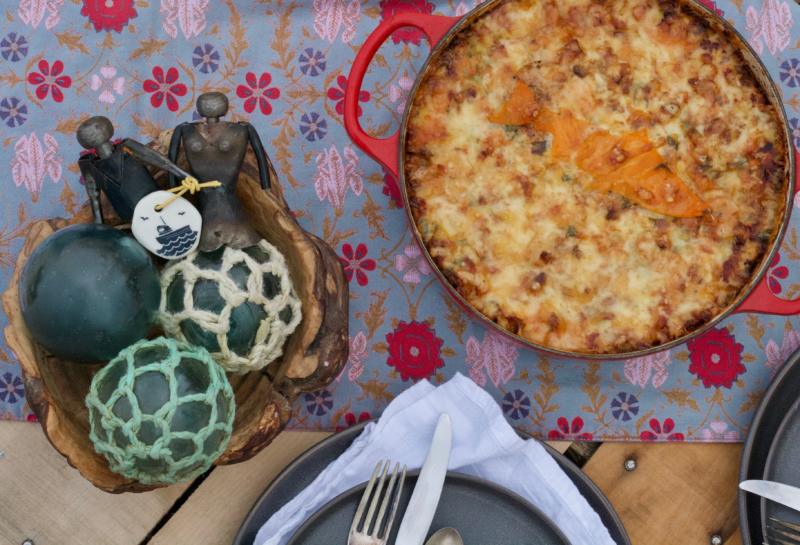Of the fifty states, only Alaska commits in its state constitution to managing natural resources like salmon for a sustained yield. This foresight at statehood was based on the belief that replenishable resources should be managed not for maximum short-term economic gain but for perpetual gain.
We can advocate for salmon by asking that our political leaders, stakeholders, and fish managers protect our wild salmon populations and habitats, especially with growing pressures to extract resources from salmon watersheds as oil revenues decline.
We deliver our fish to a cannery that’s been there since 1910. People have been harvesting salmon here for millennia. At fish sites around Uyak Bay, a third generation now picks nets alongside cousins, parents, siblings, and grandparents. You find this all across our state—extended families working together and sharing a resource—and seeing it makes tangible the idea of conserving salmon runs to leave a legacy for our young.
In A Sand Country Almanac, Aldo Leopold wrote, “We grieve only for what we know.”
Those fall mornings, well before sunrise, when I fix Liam’s lunch and he dresses in the dark so as not to wake his brother, we whisper good-bye, good luck, and he picks up his beloved tackle box, grabbing the hand of Papa or Grandpa waiting at the front door—I cry every time, at the sweet circular blessedness of it all. I don’t want to grieve for lost salmon runs.
